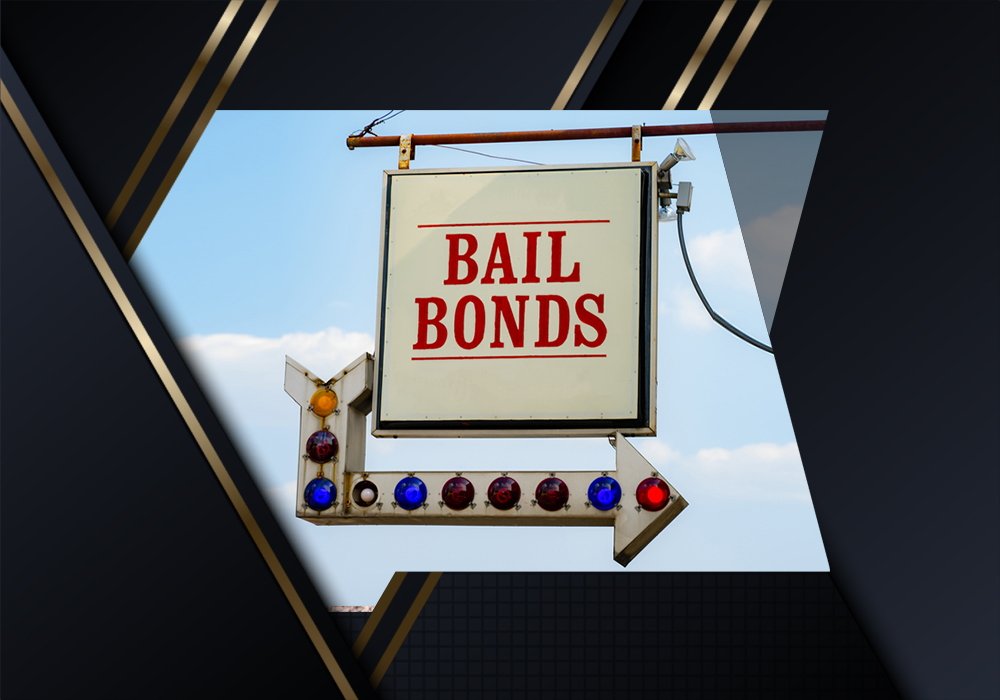Just how to Navigate the Complexities of a Bail Bond: Tips for First-Time Users
Navigating the intricacies of a bail bond can be frustrating for those not familiar with the process. Numerous new customers find themselves confused by the terminology and responsibilities included. Recognizing vital principles such as premiums and collateral is important. Additionally, choosing a trustworthy Bail bondsman can greatly relieve the journey. Nevertheless, there are important facets and usual challenges that can make complex issues further. Exploring these can offer valuable insights for any person facing this challenging situation.
Comprehending Bail Bond Terminology
What vital terms should one be familiar with when going across the world of Bail bonds? Understanding fundamental terminology is crucial for navigating Bail bonds efficiently. The term "Bail" refers to the quantity of money or property needed to safeguard an accused's launch from safekeeping, guaranteeing their appearance in court. "Bail bond" signifies an agreement between the accused, the court, and a bondsman, who offers the Bail amount in exchange for a fee, usually 10-15% of the complete Bail. "Security" might be required, including properties pledged to ensure settlement if the defendant stops working to show up (bail bonds service). "Costs" is the non-refundable fee paid to the Bail bondsman for their services. In addition, "loss" occurs if the accused does not abide by court looks, leading to the loss of the Bail amount. Experience with these terms equips people to make enlightened decisions during the Bail process
The Different Types of Bail Bonds
When taking into consideration the various choices for safeguarding a defendant's release, one may question the different sorts of Bail bonds readily available. One of the most common type is the guaranty bond, where a bondsman ensures the complete Bail quantity in exchange for a fee, normally around 10%. An additional option is a cash bond, which needs the accused or their family members to pay the whole Bail quantity in cash upfront, refundable upon court appearance. Residential property bonds entail using property as collateral to secure the Bail amount. Furthermore, some territories use government bonds for government offenses, which have details requirements. Finally, there are immigration bonds for individuals detained by immigration authorities. Each type offers a distinct function and may vary relating to price and demands, making it crucial for new users to understand their options thoroughly prior to continuing.
The Bail Bond Refine Explained
Recognizing the bail bond procedure is essential for any individual steering the judicial system. When a person is apprehended, a court establishes a Bail amount based on the severity of the costs and the offender's flight danger. A bail bond can be obtained through a qualified Bail bondsman if the Bail is expensive. The offender or co-signer typically pays a non-refundable charge, usually around 10% of the complete Bail amount.
When the bond is protected, the bondsman assures the court that the accused will show up for all arranged hearings. If the defendant falls short to appear, the bondsman is liable for Website paying the full Bail quantity, which can cause recovery initiatives to find the person. Throughout this process, communication with the bondsman is important, as they provide support and support to assure compliance with court needs and responsibilities.
Your Civil liberties as a Co-Signer
Co-signers play a necessary role in the bail bond procedure, as they are legally in charge of guaranteeing that the offender complies with the problems of the bond. This responsibility features specific legal rights that co-signers should know. To begin with, co-signers deserve to receive complete disclosure regarding the terms of the bond, consisting of fees and possible liabilities. They likewise deserve to be informed if the accused violates any type of problems of the bond, such as failing to appear in court.
In addition, co-signers can request a copy of the bail bond contract for their documents. They are entitled to comprehend the consequences of their economic commitment, consisting of the possibility of being held responsible for the sum total of the bond if the accused does not abide. Inevitably, co-signers have the right to withdraw their support under particular problems, although this may need notifying the bail bond agent beforehand.

Usual Mistakes to Prevent
Navigating the bail bond procedure can be intricate, and co-signers frequently make a number of typical blunders that can lead to problems. One major error is stopping working to review the whole Bail agreement, which might contain crucial terms and problems that impact their monetary responsibility. In addition, co-signers occasionally underestimate the importance of understanding the defendant's situation, including their court dates and potential consequences of non-compliance. Another frequent mistake is overlooking to preserve interaction with the Bail bondsman, which can impede the procedure if problems develop. Co-signers may likewise neglect the financial implications of Bail, not fully grasping the costs entailed or the opportunity of losing collateral. They could presume that when Bail is posted, their duty ends, not realizing that they continue to be liable up until the case is settled. Staying clear of these risks can significantly ease the bail bond experience for new individuals.
Often Asked Inquiries

Just How Do Bail Bond Business Determine the Costs Amount?
Bail bond firms normally identify the costs amount based upon the overall Bail amount, the threat related to the defendant, and the firm's policies - bail bonds service. Variables like the accused's criminal history and trip risk additionally influence this choice
Can I Work Out the Regards To a Bail Bond?
The possibility of bargaining bail bond terms varies by company. Some bondsmen might provide flexibility, while others stick purely to established standards. It is recommended to discuss choices directly with the bail bond representative for clarity.
What Occurs if the Offender Misses Their Court Date?
If an offender misses their court date, a bench warrant might be released for their arrest. Furthermore, the bail bond might be forfeited, causing economic repercussions for the co-signer and possible legal issues for the offender.
Are Bail Bond Fees Refundable After the Instance Ends?
Bail bond costs are usually non-refundable, no matter of the instance outcome. This charge compensates the bond representative see here now for the solution of safeguarding the defendant's release, covering dangers and management prices associated with the process.
Can I Use Collateral Apart From Residential Property for a Bail Bond?
The question of using collateral beyond residential or commercial property for a bail bond usually arises. Many bail bond agents accept various forms of collateral, such as cars or important products, however plans may differ by company and jurisdiction.
"Bail bond" denotes a contract between the defendant, the court, and a Bail bondsman, that provides the Bail quantity in exchange for a cost, typically 10-15% of the complete Bail. The most usual kind is the guaranty bond, where a Bail bondsman ensures the full Bail amount in exchange for a fee, typically around 10%. If the Bail is unaffordable, a bail bond can be gotten via a qualified Bail bondsman. Co-signers play an essential duty in the bail bond procedure, as they are legitimately liable for making sure that the accused adheres to the conditions of the bond (bail bonds service). Bail bond companies typically establish the costs amount Get More Information based on the total Bail amount, the threat linked with the accused, and the business's policies